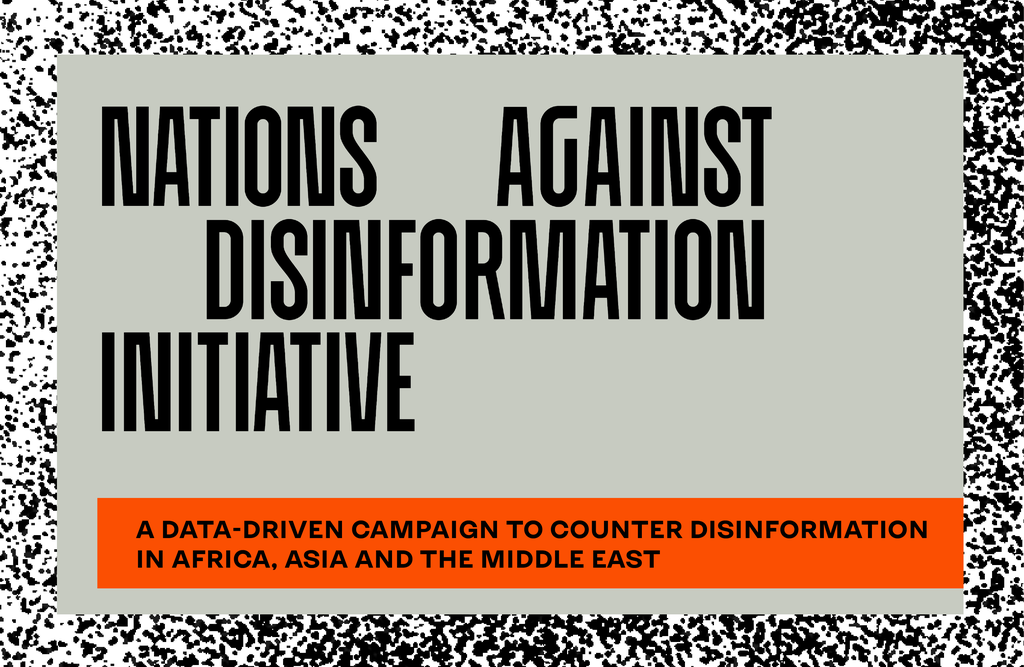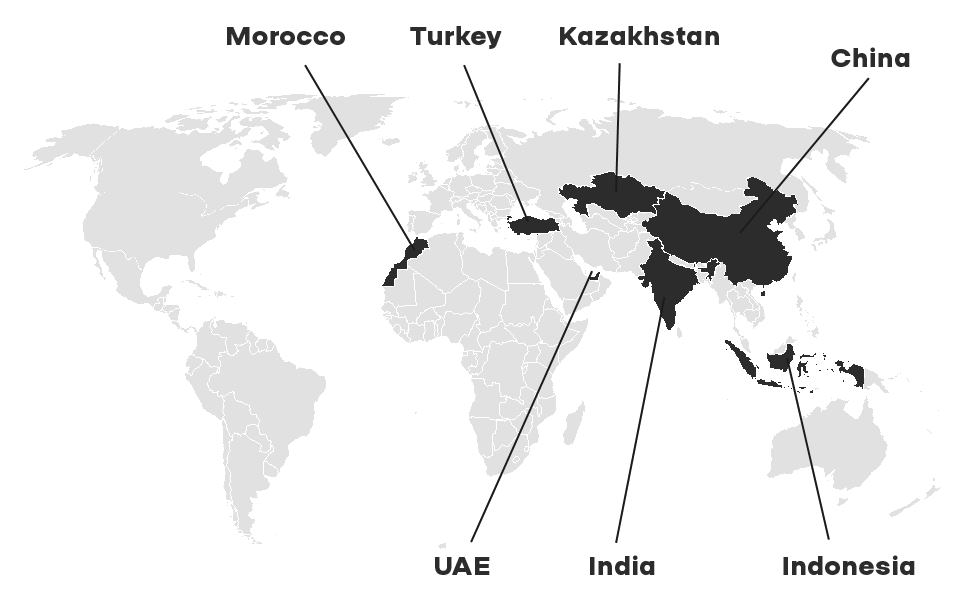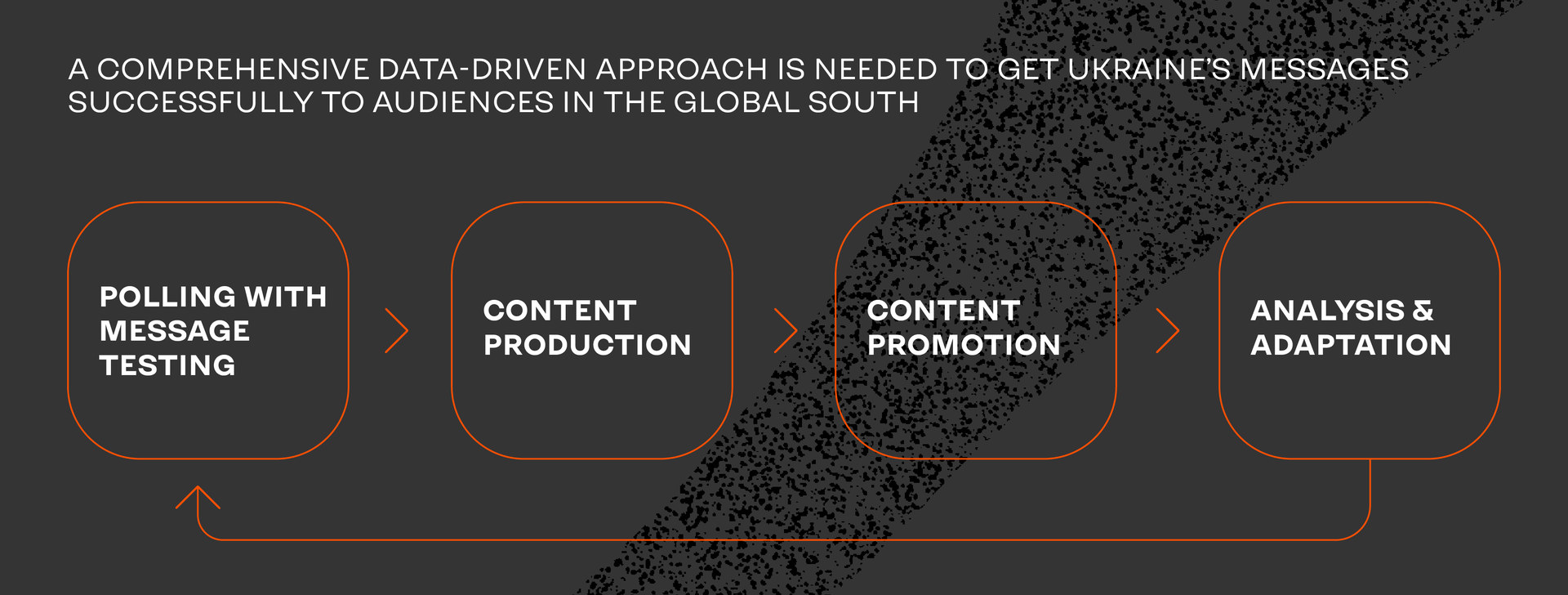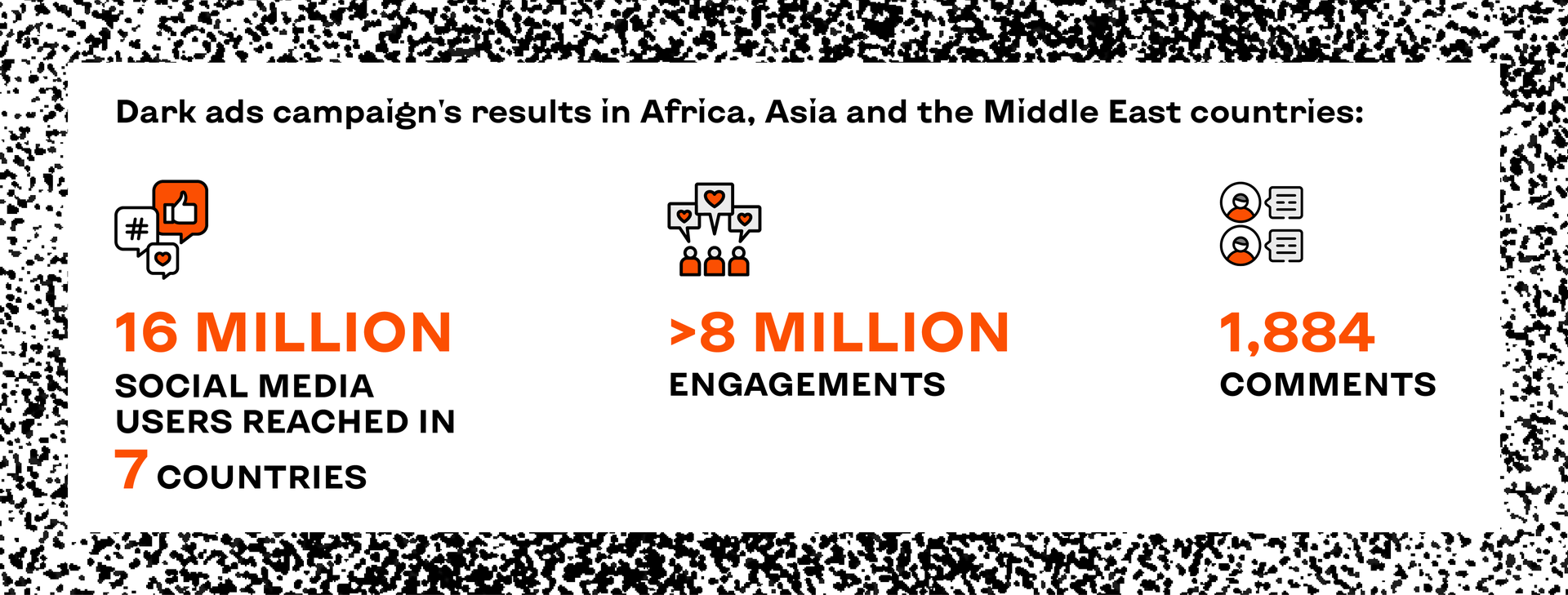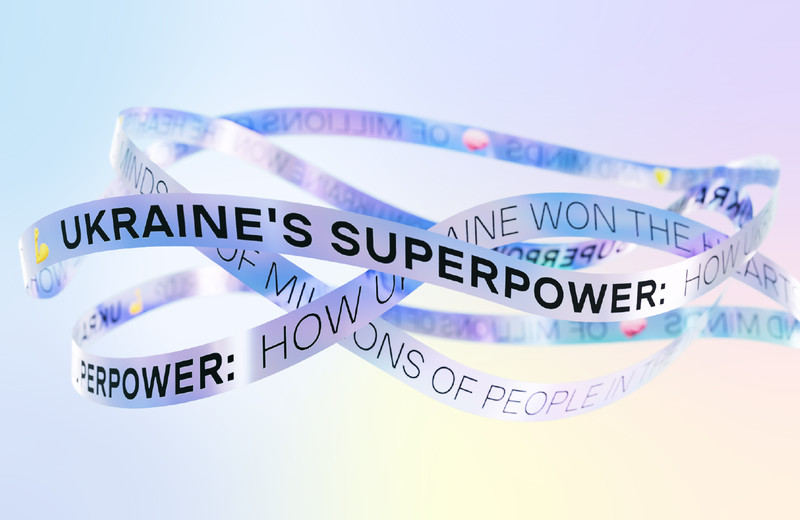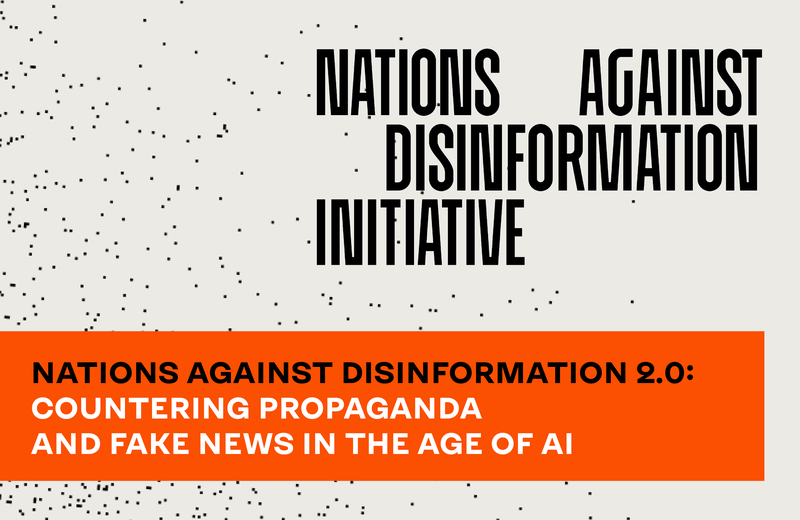A data-driven campaign to counter disinformation in Africa, Asia and the Middle East
Goal
To counter disinformation about Ukraine in distant countries in Africa, Asia and the Middle East by promoting Ukraine's narrative.
Insight
While overall support for Ukraine was high globally in 2022, some regions of the world were more pro-Ukrainian than others. The countries of Africa, Asia and the Middle East have historically been less connected to Ukraine than Western societies. Research conducted by the Zinc Network for Ukraine's Ministry of Foreign Affairs in 2022 measured people's opinions about the war in Ukraine in seven Global South countries (China, India, Indonesia, Kazakhstan, Morocco, Turkey, and UAE). 34% of people surveyed had a clear pro-Ukrainian position, with a further 46% being neutral to Ukraine or Russia.
The survey in the abovementioned countries was designed in order to outline key messages about Ukraine, which land best for those societies, and make respondents feel more favourable to Ukraine. The messages which performed best in the selected countries were implemented in the content for the social media.
Implementation
Project components:
⚫ the survey in seven countries China, India, Indonesia, Kazakhstan, Morocco, Turkey, and UAE
⚫ selecting the messages to be transformed into content for social media
For testing through a targeted campaign using video content, 5 messages were selected on the basis of how well they were performing in the survey, where towards 4 of them the audience in the selected countries were favourable, and 1 performed the worst.
- "Ukraine is fighting for freedom, democracy, and sovereignty"
- "Despite the challenges, Ukraine is actively looking for solutions to solve the war's impact on food supplies"
- "A free Ukraine would have a lot to offer the world in technological development and investment"
- "If Russia is not held accountable, then other countries will become emboldened to commit atrocities on their own” (all — well-performing)
- "Russia's military is weakened by low morale, corruption, and bad leadership, showing that Russia is not a reliable security partner" (bad-performing)
⚫ creative content production
⚫ dark ads campaign in the selected countries
Dark ads advertising, used as a key approach in this project, is a special type of advertising when the generated ads are visible only to targeted individuals. Therefore, in this campaign, the multiple content localisations (subtitled videos) never appeared on Ukraine.ua feed. The chosen digital strategy has allowed us to target 7 countries simultaneously, using the content which was tailored respectively.
⚫ analysis of the comments and engagement
⚫ preparing the recommendation based on the results of the campaign
⚫ experience sharing session for partners within the initiative "Nations Against Disinformation"
RESULTS
In total, the dark ads campaign reached out to over 16 million social media users in 7 countries, which also brought over 8 million engagements. The most valuable insight for further research was comments (1,884) from users that let us analyse sentiment and their reactions.
Upon the qualitative and quantitative criteria, the best and the worst performing messages of the campaign were defined. While the message "Ukraine fight for freedom" with the best combination of a number of views and positive engagement was the most successful, another one, "Russia is losing" received many negative reactions despite the highest engagement rate.
The results of the campaign proved the approach to be an effective way of promoting Ukraine's narrative in the selected countries and discovered a lot of very useful observations to be taken into consideration in further communications activities in Africa, Asia and the Middle East countries:
🟠 Although we used the messages which demonstrated the best perception in the survey results, the digital campaign allowed us to discover some nuances of Ukraine's perception in the selected countries. These findings showed that even the most supported messages from the survey could have a massive backlash due to the complexity of the local context. In further communications activities, this is to be taken into account.
🟠 Russia's war against Ukraine is mainly perceived in the selected countries as the one between the wider West and Russia, questioning Ukraine's independence and agency in this confrontation. Comments on social media would often claim that Ukraine's decision to join the West is to blame for the invasion and that Russia is fighting against the wider West.
🟠 The audiences in the distant countries of Africa, Asia and the Middle East tend to compare Russia's war on Ukraine to the local wars and conflicts. A recurring theme in the comments was comparing Russia's war in Ukraine to conflicts more local to audiences — in Iraq, Syria and most notably, Palestine. While Western audiences have not experienced such large-scale war at their borders since WW2, this is not the case for audiences in the Global South and should be taken into account when crafting messages.
🟠 The content about Ukraine fighting for its freedom demonstrated the best combination of a number of views combined with positive engagement. Among all the videos, it was by far the most successful in attracting positive comments. The video was particularly well received in Kazakhstan, where 80% of comments were positive.
🟠 The video with messages about Ukraine's efforts to deliver food despite the war had the highest positive engagement rate across countries, even if its view rate was somewhat average compared to the rest of the videos.
🟠 Messages on Russia's accountability for the aggression received a mixed reaction in terms of engagement. While the positive engagement rate was high, comments were among the most negative, especially in Morocco, where many used the case of Palestine to disprove the video's message.
🟠 Video with the message on Russia losing the war received high levels of engagement, but this engagement was not necessarily positive. It had one of the highest view rates of all the videos. However, its positive engagement rate was lower, and it received the worst comments among all the videos. To increase the perception that Ukraine is winning, communications should focus more on the success of the Ukrainian army rather than Russia's failure. Focus on individual Ukrainian soldiers may be useful, as it will show the Ukrainian army's professionalism, independence, and resolve.
Recommendations
Enhance communications on bilateral cooperation between Ukraine and the Global South countries — The perception that the war in Ukraine is one between the wider West (especially US and NATO) and Russia was seen across comments on all content. Communications to the Global South countries should be focused on portraying Ukraine as a strong actor who can deliver a lot to a specific country in bilateral relations.
Focus on tech benefits for others — The messaging around Ukraine's technological prowess is promising. Taking into account that this message was one of the most successful in the survey, the communications on tech potential should be focused on tangible benefits Ukraine's tech could bring to specific countries or audiences.
Highlight the diverse identity of Ukraine — As the video on freedom and diversity mainly got positive feedback, it is worth trying to communicate specifically on various dimensions of diversity in Ukraine's society. This communication may involve individuals from different minority groups in Ukraine, with a heavy emphasis on how Ukraine protects these minorities. A focus on the Muslim population could be particularly successful in Indonesia, Morocco, Turkey, and UAE.
We are particularly grateful to
UCBI
ZINC NETWORK
Team
BRAND UKRAINE — idea development, project management, fundraising, analysis
Maria Lypiatska
Yaroslav Turbil
Marina Dadinova
Tamara Novoselska
Bickerstaff — creative content production
Zinc Networks — dark ads campaign management
